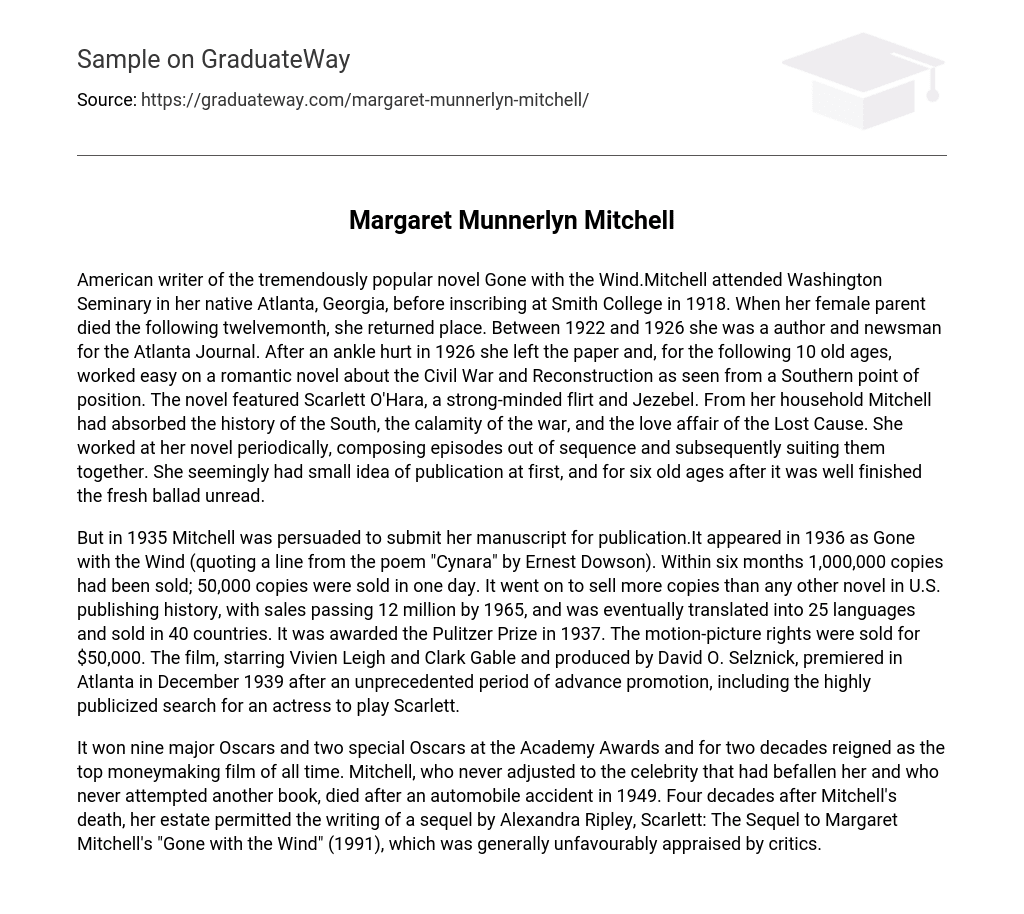American writer of the tremendously popular novel Gone with the Wind.Mitchell attended Washington Seminary in her native Atlanta, Georgia, before inscribing at Smith College in 1918. When her female parent died the following twelvemonth, she returned place. Between 1922 and 1926 she was a author and newsman for the Atlanta Journal. After an ankle hurt in 1926 she left the paper and, for the following 10 old ages, worked easy on a romantic novel about the Civil War and Reconstruction as seen from a Southern point of position. The novel featured Scarlett O’Hara, a strong-minded flirt and Jezebel. From her household Mitchell had absorbed the history of the South, the calamity of the war, and the love affair of the Lost Cause. She worked at her novel periodically, composing episodes out of sequence and subsequently suiting them together. She seemingly had small idea of publication at first, and for six old ages after it was well finished the fresh ballad unread.
But in 1935 Mitchell was persuaded to submit her manuscript for publication.It appeared in 1936 as Gone with the Wind (quoting a line from the poem “Cynara” by Ernest Dowson). Within six months 1,000,000 copies had been sold; 50,000 copies were sold in one day. It went on to sell more copies than any other novel in U.S. publishing history, with sales passing 12 million by 1965, and was eventually translated into 25 languages and sold in 40 countries. It was awarded the Pulitzer Prize in 1937. The motion-picture rights were sold for $50,000. The film, starring Vivien Leigh and Clark Gable and produced by David O. Selznick, premiered in Atlanta in December 1939 after an unprecedented period of advance promotion, including the highly publicized search for an actress to play Scarlett.
It won nine major Oscars and two special Oscars at the Academy Awards and for two decades reigned as the top moneymaking film of all time. Mitchell, who never adjusted to the celebrity that had befallen her and who never attempted another book, died after an automobile accident in 1949. Four decades after Mitchell’s death, her estate permitted the writing of a sequel by Alexandra Ripley, Scarlett: The Sequel to Margaret Mitchell’s “Gone with the Wind” (1991), which was generally unfavourably appraised by critics.





